
We kindly inform you that, as long as the subject affiliation of our 300.000+ articles is in progress, you might get unsufficient or no results on your third level or second level search. In this case, please broaden your search criteria.

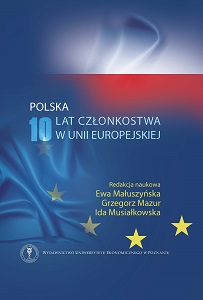
Celem artykułu jest próba oceny znaczenia uczestnictwa Polski w jednolitym rynku europejskim dla wybranych uwarunkowań mobilności edukacyjnej i zawodowej młodych Polaków. Zasadniczą tezą jest natomiast stwierdzenie, że udział Polski we wspólnotowych programach edukacyjnych zwiększa szanse młodych ludzi na rynku pracy.
More...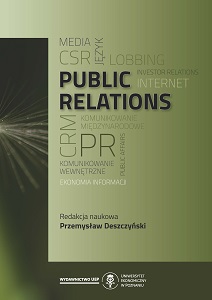
Międzynarodowe public relations należy traktować jako dziedzinę powstałą w konsekwencji zmian i wciąż pogłębiających się procesów zachodzących na arenie międzynarodowej. Globalizacja, mediatyzacja i demokratyzacja doprowadziły do powstania nowych aktorów w środowisku międzynarodowym, a także redefinicji roli państw od ośrodków administracyjnych do podmiotów konkurujących ze sobą w zglobalizowanej gospodarce. Umiędzynarodowienie życia gospodarczego wymaga dostosowania się do nowych warunków poprzez wdrażanie pewnych rozwiązań od strony praktycznej oraz pojęć w wymiarze teoretycznym, który ową praktykę stara się opisywać i wyjaśniać. W sytuacji coraz większej roli mediów funkcjonujących w skali międzynarodowej, pogłębiającej się demokratyzacji i globalnej konkurencji umiędzynarodowienie public relations zdaje się nieodzowne. Państwa i nowi aktorzy, do których zalicza się między innymi korporacje czy też organizacje międzyrządowe, konfrontując się z wyzwaniami, jakie stawia przed nimi współczesne życie gospodarcze, muszą podejmować się działań z zakresu międzynarodowych public relations, aby zyskać atrakcyjność i konkurencyjność w środowisku międzynarodowym. Dziedzina ta wykracza poza tradycyjne ujęcie public relations, ponieważ należy w niej uwzględnić różnice językowe, kulturowe i geograficzne. Istotne wydaje się także to, że ta dziedzina odgrywa niezwykle ważną rolę w perspektywie państw i organizacji międzyrządowych. Działania z zakresu międzynarodowych public relations tworzą dodatkową, pozornie nieuchwytną, wartość w postaci reputacji, miękkiej siły i marki kraju, co przekłada się na zaufanie, a w konsekwencji pozwala na wprowadzanie pozytywnych zmian, promowanie wartości, poprawę efektów ekonomicznych i budowanie pozycji podmiotu w środowisku międzynarodowym.
More...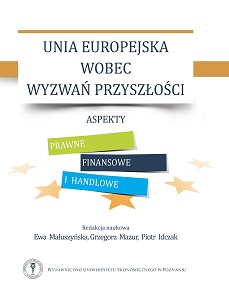
Zarówno w przedlizbońskim, jak i obecnym stanie prawnym wspólna polityka zagraniczna i bezpieczeństwa, jako płaszczyzna współpracy w ramach Unii Europejskiej, wyróżniała się i nadal wyróżnia na tle innych rodzajów polityki prowadzonych w traktatowych ramach tej organizacji. Najważniejsze kierunki ewolucji WPZiB wytyczyły dwa traktaty, a wiec traktat amsterdamski i traktat lizboński. Ten ostatni zasadniczo zmienił usytuowanie WPZiB w ramach UE, co wiązało się z likwidacją charakterystycznej, trójfilarowej konstrukcji prawnej UE oraz z istotnymi zmianami instytucjonalnymi w jej strukturze. Specyfika współpracy w ramach WPZiB spowodowała jednak, że została ona wyraźnie wyodrębniona zarówno z całego katalogu pozostałych unijnych rodzajów polityki, jak i z całej grupy działań zewnętrznych Unii.
More...
W ramach wspólnej polityki zagranicznej i bezpieczeństwa Unia Europejska stosuje sankcje mające wspomóc egzekwowanie jej celów, a zwłaszcza przestrzegania praw człowieka, demokracji i praworządności. Celem artykułu jest analiza skuteczności polityki sankcji Unii Europejskiej wobec Islamskiej Republiki Iranu. Zastosowaną metodą badawczą jest analiza porównawcza. Pierwsza część artykułu została poświęcona teoretycznemu ujęciu sankcji oraz czynnikom mającym wpływ na ich skuteczność. W następnym opisano podstawy systemowe wspólnej polityki zagranicznej i bezpieczeństwa Unii Europejskiej oraz zastosowanie sankcji jako jej elementu. W trzeciej części przedstawiono próbę oceny efektywności unijnej polityki sankcji wobec Iranu.
More...
Podejmując problem granic polityczno-gospodarczej działalności państwa rozumianej jako dopuszczalny zakres publiczno-prawnej ingerencji w stosunki gospodarcze, podkreślić należy konieczność analizy uwarunkowań ustrojowych. W przypadku Polski wynikają one z krajowych regulacji konstytucyjnych i z praw podstawowych oraz zasad ustroju gospodarczego Unii Europejskiej. Wpływ na organizację gospodarki unijnej i krajowej mają również pozaprawne regulacje zachowań gospodarczych, czyli polityka gospodarczo-społeczna prowadzona przez instytucje unijne oraz krajowe organy władzy publicznej. Autorka prezentuje szczególnie formułę społecznej gospodarki rynkowej, a także aksjologiczne podstawy publicznoprawnej ingerencji w gospodarkę w obszarze rozwoju i spójności.
More...
Celem niniejszego opracowania jest porównanie przyjętych w Rzeczypospolitej Polskiej rozwiązań prawnych, które mają na celu ochronę ładu i bezpieczeństwa finansów publicznych, a dotyczą systemu odpowiedzialności za naruszenie dyscypliny finansów publicznych, z rozwiązaniami prawnymi wybranych państw Unii Europejskiej oraz ukazanie znaczenia kryteriów 3E oraz value for money w ocenie sprawnego funkcjonowania jednostek sektora finansów publicznych. W każdym z omawianych państw utworzono instytucje publiczne wyposażone w instrumenty prawnofinansowe, które mają na celu zapewnienie przestrzegania przepisów regulujących procesy gromadzenia i rozdysponowania środków publicznych. Omówienie francuskich, niemieckich i brytyjskich rozwiązań prawnych na tle tych, które funkcjonują w RP, umożliwi wykazanie unikatowości polskiego systemu odpowiedzialności za naruszenie dyscypliny finansów publicznych. W opracowaniu uwzględniono stan prawny obowiązujący na 18 lutego 2015 r.
More...
Problem stabilizowania zadłużenia stał się szczególnie istotny obecnie w kontekście kryzysu finansowego w państwach strefy euro. Rodzą się pytania: czy państwa te są w stanie ustabilizować zadłużenie w ciągu najbliższych lat? czy obowiązujące obecnie traktatowe kryterium deficytu sektora general government jest wystarczające do oceny sytuacji finansów publicznych, w świetle braku oceny jego struktury wskazującej na obciążenie budżetu bieżącymi kosztami obsługi długu? czy ocena poziomu salda pierwotnego (deficytu pierwotnego) nie byłaby bardziej adekwatnym warunkiem weryfikacji bieżącego stanu finansów publicznych? W artykule tym autorzy dokonali analizy sytuacji finansów publicznych w krajach strefy euro z uwzględnieniem wybranych wskaźników budżetowych. Celem badania było wskazanie podstaw do oceny możliwości stabilizowania długu przez te kraje, a tym samym próba wskazania na możliwe odpowiedzi na powyższe pytania.
More...
Współczesny regionalizm przestaje być procesem, w który zaangażowane są głównie kraje rozwijające się. Coraz częściej pojawiają się w jego ramach gospodarki wysoko rozwinięte (np. Stany Zjednoczone, Kanada, Unia Europejska, Japonia, Korea Południowa, Australia), dla których takie działanie stanowi możliwość określenia priorytetowych dziedzin (tzw. narzucenia agendy, agenda setting) na drodze ku liberalizacji handlu i tym samym wskazania dróg jego dalszej ewolucji podporządkowanej narodowym lub wspólnie podzielanym interesom. Na tym tle umowa handlowa zawarta między Unią Europejską a Republiką Korei (Koreą Południową) stanowi porozumienie nowej generacji warte bliższej analizy. Rozważania obejmują syntetyczny przegląd głównych motywów jej zawarcia wraz z odniesieniem do wybranych badań, określenie celu oraz hipotez roboczych oraz prezentację wyników analizy w odniesieniu do zmian, jakie miały miejsce w trakcie pierwszych kilku lat jej obowiązywania w obrębie handlu towarowego, w tym w szczególności dóbr zaawansowanych technologicznie (high-tech).
More...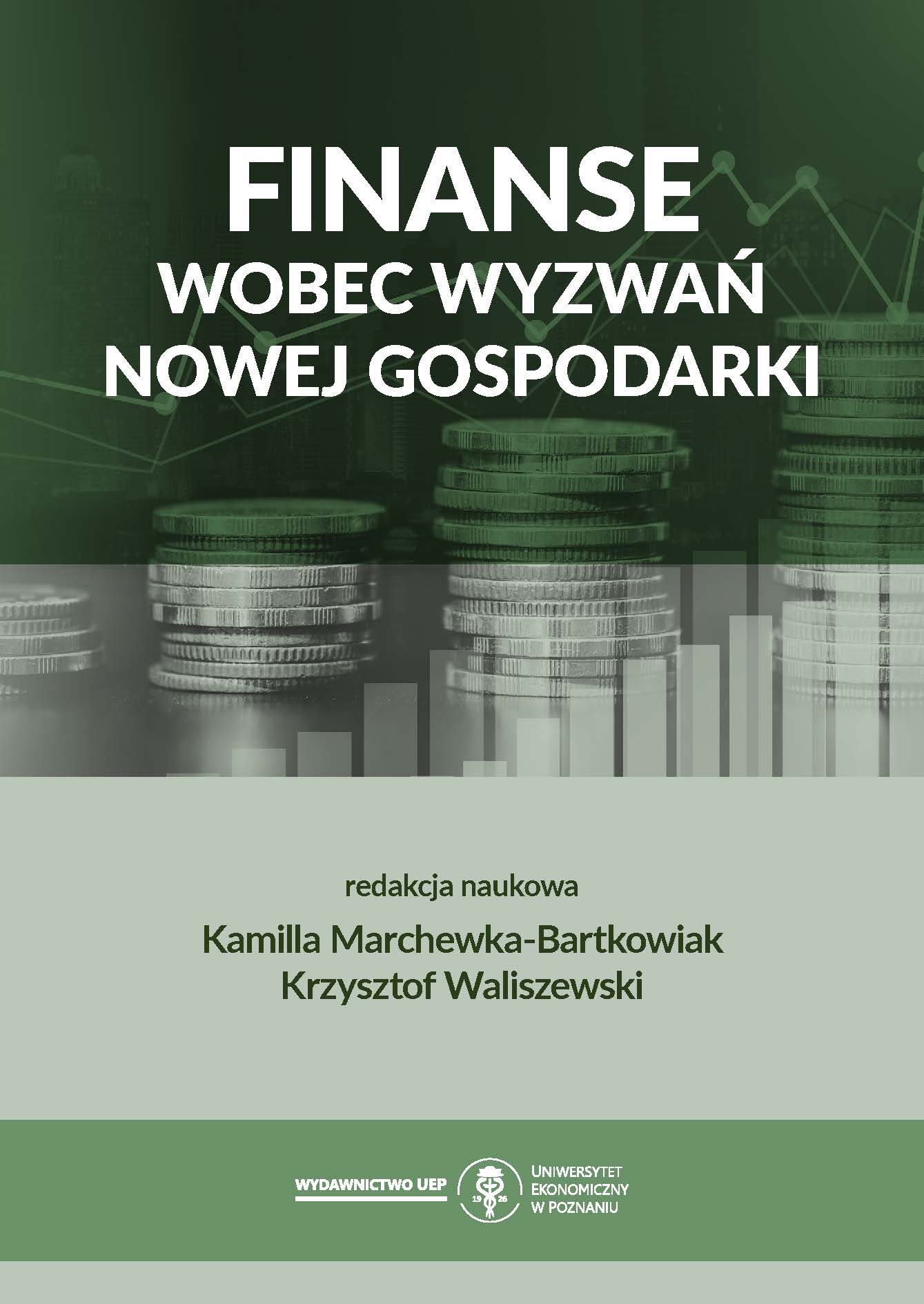
Purpose: The aim of this paper is to prove the thesis that the intervention activities of the Polish government and the central bank during the COVID-19 pandemic were necessary to overcome the economic consequences of the COVID-19 crisis. Methodology: The main research method is the monograph and the research techniques include analysis of legal documents and statistical data on public finance. Findings: The interventionism of the EU, combined with the actions of state institutions and NBP, had a positive impact on GDP dynamics and the labour market. Its negative effect was an increase in public debt and the money supply in the banking system. The imbalance between effective demand and effective supply was an important, yet not sole, cause of the persistent inflation of 2021–2023.
More...
Purpose: The aim of this chapter is to identify the selected problems related to financial markets, which still remain unsolved and can lead to another financial crisis. Methodology: The following methods are used in this chapter: statistical and descriptive analysis, critical analysis of the literature and available sources, comparative studies as well as case studies. Findings: The main challenges identified by the author include: an increase in debt both globally and in individual countries, further expansion of systemically important financial institutions, excessive and complicated banking regulations, as well as the spread of moral hazard.
More...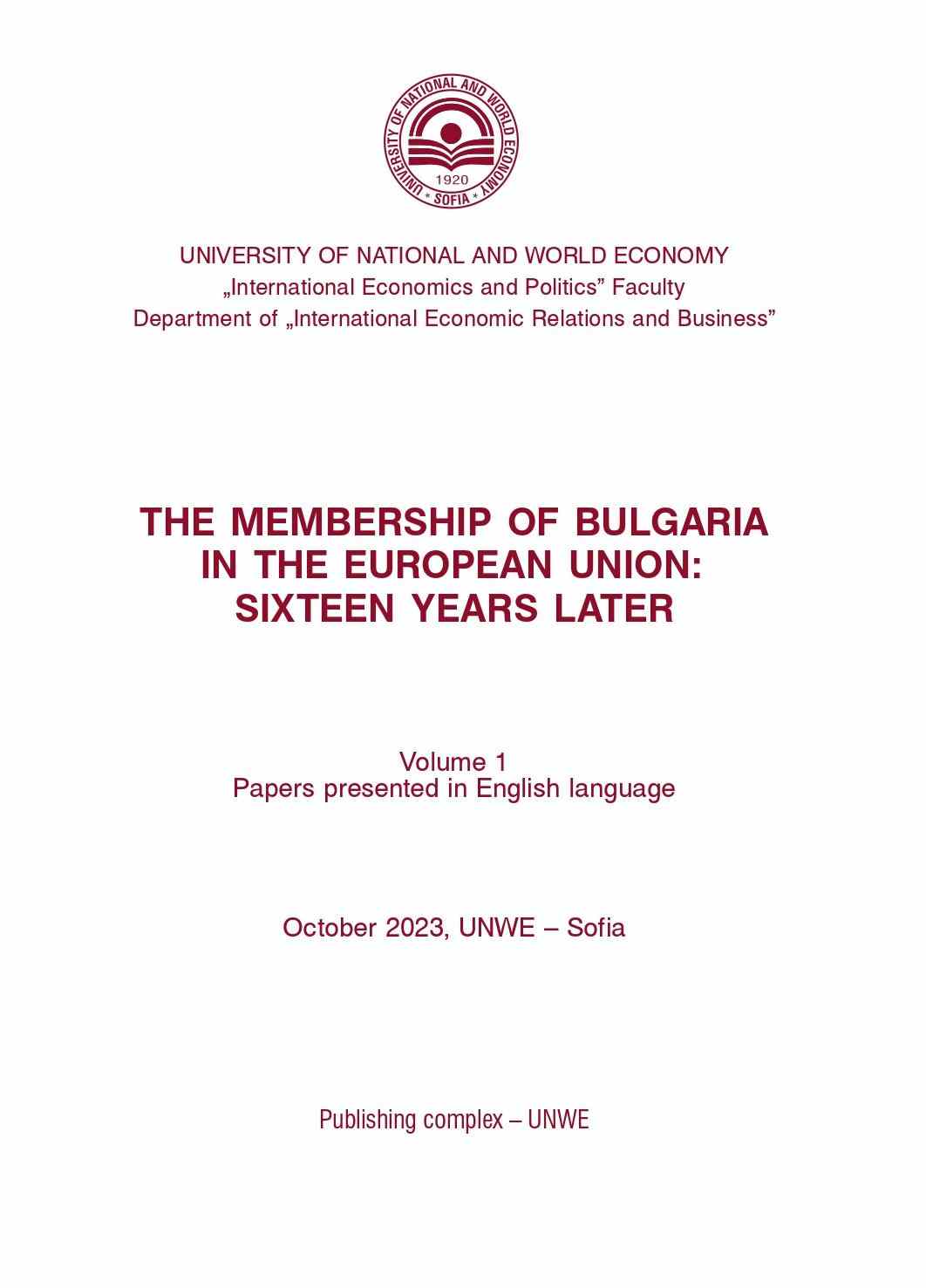
This research aims to identify the impact of sustainable production on the development of international business. The research focuses on the global shift towards sustainability and its impact on business in various directions. Analyze the importance of sustainable production in achieving successful and sustainable international business development by building a structural model using the structural modeling method and testing the validity and quality of the models. The impact of sustainable production includes environmental, economic, and social factors, and the development of international business is adopted by attracting customers and investors, product quality and building the reputation of the brand, The research reached a set of conclusions and recommendations and the research hopes that the results and recommendations will contribute to enhancing awareness of the importance of sustainability and encouraging more companies to adopt sustainable production practices in the context of international business.
More...
The user journey is a pivotal concept in marketing that evolves and adapts amidst technological, economic, and behavioral shifts. This paper aims to present practical models for user journey planning, exploring their influence and subsequent utilization by companies exporting their products. Specifically, it delves into Bulgarian companies and their strategies to plan and implement exports to EU member states. Interviews have been conducted with marketing managers exporting from Bulgaria to the EU. The framework identified in the analysis is employed, detailing the various approaches companies opt for. The paper concludes by outlining areas for further analysis regarding companies’ decisions related to elements of the user journey in international sales.
More...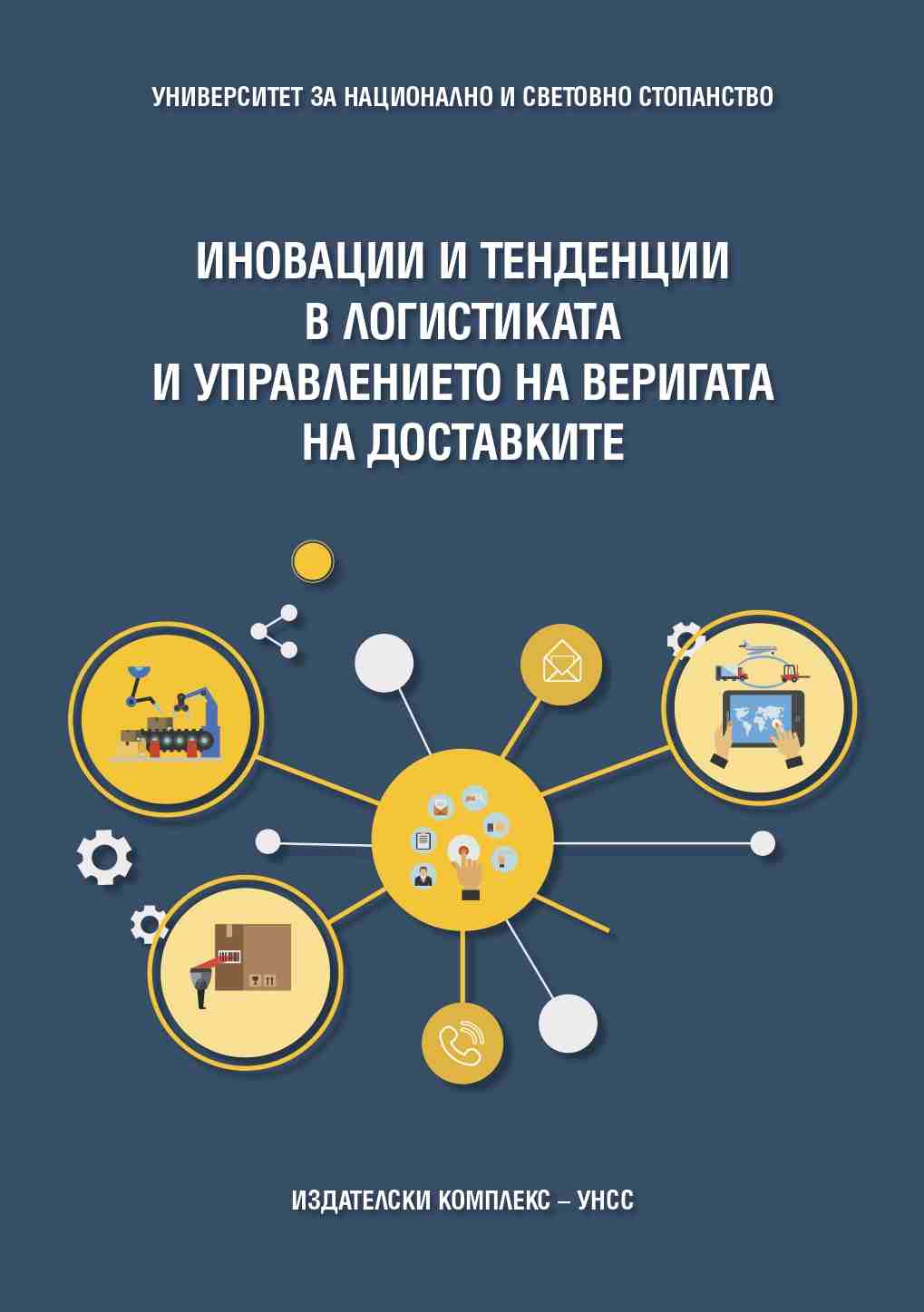
The digital and green transformation, which is developing on global level at different speeds in the first half of 21st century, puts pressure on the Bulgarian port operators to change their innovation policies. This process is also influencing the competitiveness of ports in the context of the Bulgarian economy, which is still catching up with the average EU levels of GDP per capita, which are not members of the Eurozone. The purpose of the present study is to discuss the issue if the digital and green transformation, which is developing both on European and global level, is an accelerator or a limiter of the competitiveness of ports in countries with transition economies.
More...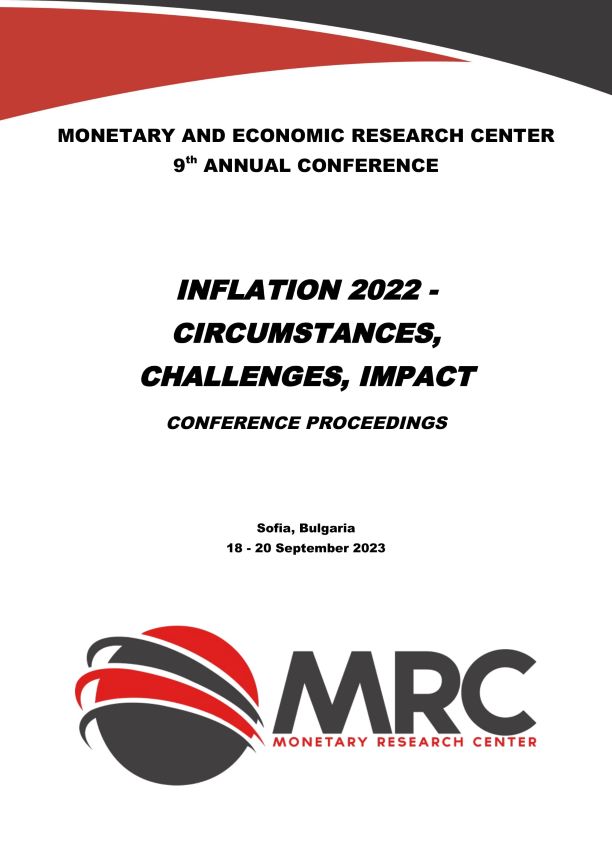
Based substantially on the analysis of Bob Lyddon, with whom the author has worked on several papers and reports about EU financial stability, this paper summarises the scale and scope of unrecorded and unreported liabilities that are hidden not so much by weak accounting rules but more by the careful and deliberate design. Some institutions are backed only by Eurozone member states, some by all EU member states. The effect of this practice of creating and hiding liabilities is estimated at almost doubling the combined General Government Gross Debt of the EU member states. This matters; bad for embedded but as yet relatively low inflation, and bad for the stability of the euro as a currency.
More...
The overall inflation and its trajectory over the interruption of supply chain management , caused by the unforeseen peril introduced by the COVID-29 pandemic in the global economy, encouraged all sorts of novel disruptions to maintain market equilibrium. The elites in the world successfully used the pandemic consequences to gain more power. The inflation is one of the powerful tool that serve them. This paper uses process mining analysis to identify the importance of inflation in the neoliberal doctrine. The research papers have been compiled from Web of Science and Research Gate. Cross-reference networks have been extracted from the source papers, enabling visualization to uncover the disciplinary contributions which have supported the relation between inflation and neoliberal doctrine.
More...
2009 – the crisis year – brought about crucial changes in the established and seemingly successful picture of the oil market. The New Year “gas war” between Russia and Ukraine consolidated bad tradition, demonstrating the vulnerability of the present structure of the oil and gas market once again. There were no winners, everyone suffered: the supplier, the transporter and the consumers. Conclusions and assessments of the conflict, and its consequences, are, generally, diametrically opposed. This was reflected in the subsequent actions and statements of the players in the market. It seems generally considered that on the ‘gas front’ Russia is leading a war “against all”. This confrontation is not new; but if earlier it could be considered as “debatable”, now resentment towards the actions and positions of Moscow are reaching a kind of hysteria. Such a political context, alongside some recent events, certainly has an influence on the future of the energy security in Europe, especially considering dramatic changes in the oil and gas markets.
More...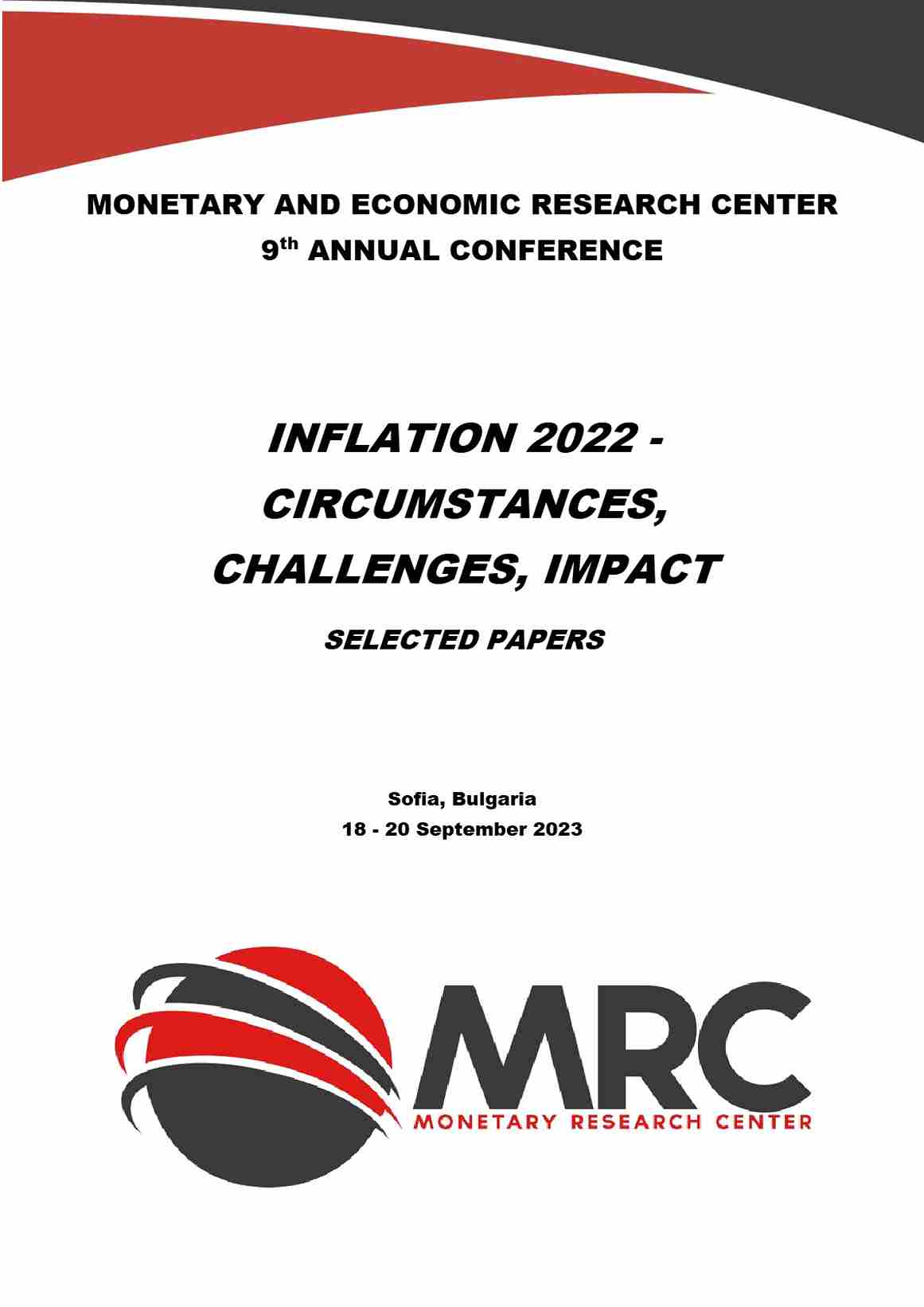
This article explores the green political agenda's evolution, particularly its rise as a driving force behind green industrial policies since the 2000s. These policies have become instrumental for governments aiming to bolster their national businesses' competitive edge and international trade roles. The paper is structured in three main sections. The first section traces the evolution of the Green agenda from the 1970s to the present, highlighting its transformation in policy makers' eyes to an economic and strategic tool in the 2000s. It explores how green industrial policies emerged, influencing international trade dynamics and national economic strategies. The second section delves into the specific aims and instruments of these policies over the past decades. The third section provides an examination of green industrial policy measures enacted by the US, the EU, and China in recent years. The conclusion highlights challenges for European decision-makers in crafting effective green industrial measures and suggests areas for future discussion.
More...
Since the adoption of the Paris Agreement in 2015, European banks have invested 1.331 billion US $ in fossil fuels (Banking on Climate Chaos, 2023). The level of profit serves as a key incentive for banks to continue their involvement with fossil fuels. However, some banks have stopped these practices and committed to no longer supporting the expansion of this sector. This article aims to explore the role of banks, particularly cooperative banks, in combating climate change. Our objective is to examine to what extent cooperative banks are better positioned to tackle the challenges posed by climate change. The legitimacy of these banks is demonstrated through their capacity to adapt in a constantly evolving environment, and their foundational characteristics actively contribute to climate action.
More...
The paper reflects some thoughts on the nexus between the sanctions against Russia and the global inflation rates since February 2022. The paper sets the following objectives: 1) to bring out and define the term sancflation, and 2) to search for other cases of similar global impact of the sanctions-inflation nexus. The thesis statement is that sanctions on Russia are unique and have global economic effects (including inflation) far greater than anything seen before. The global impact evaluation of Russia’s case should prompt a reconsideration of sanctions as a policy instrument.
More...